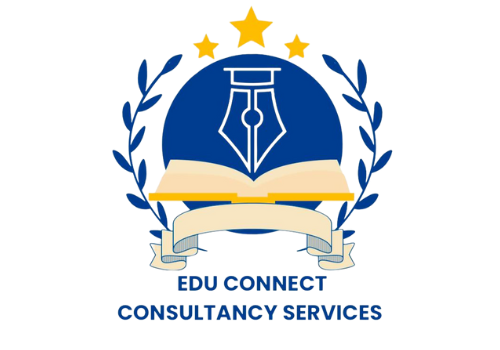The global travel industry is one of the most dynamic and fast-evolving sectors, presenting many career opportunities for individuals with the appropriate skills and expertise. As the industry continues to grow and diversify, the demand for professionals with specialised education in tourism and recreation has never been higher. Pursuing a Master’s in Tourism and Recreation is a prudent move for anyone looking to advance their career in this vibrant field. In particular, studying in Germany offers unique advantages that can set you apart in the global marketplace.
In an era where travellers seek more than just a destination, the role of tourism and recreation professionals has expanded significantly. Today’s industry leaders must be adept at understanding diverse customer needs, managing complex operations, and navigating the challenges of sustainability and cultural sensitivity. A Master’s in Tourism and Recreation provides the advanced education necessary to excel in these areas, offering deep insights into the latest industry trends, management practices, and innovative strategies.
This degree prepares graduates to assume leadership roles across multiple travel industry sectors, such as hospitality, event management, destination marketing, and recreational planning. Moreover, the programme often includes practical components such as internships and fieldwork, allowing students to gain hands-on experience and translate their theoretical knowledge into real-world applications.
Pursuing your studies in Germany offers numerous significant advantages:
Graduates with a Master’s in Tourism and Recreation are well-prepared to take on leadership roles in various travel industry sectors. Here are some of the career paths available:
– Tourism Manager: Overseeing the development and implementation of tourism strategies for destinations, ensuring sustainable growth and enhancing visitor experiences.
– Event Planner: Managing large-scale events, conferences, and festivals that attract tourists and promote cultural exchange.
– Hospitality Executive: Leading operations in hotels, resorts, and other accommodation providers, focusing on guest satisfaction and operational efficiency.
– Destination Marketing Specialist: Promoting regions or countries as attractive tourist destinations through targeted marketing campaigns.
– Recreation Manager: Designing and managing recreational programmes and facilities, such as parks, sports complexes, and community centres.
– Sustainable Tourism Consultant: Advising organisations and governments on implementing sustainable practices in tourism operations, ensuring environmental conservation and long-term viability.
– Tourism Policy Advisor: Working with government agencies to develop and implement policies that support the tourism industry, focussing on sustainable development, cultural preservation, and economic growth.
– Travel Entrepreneur: Starting a travel-related business, such as a boutique travel agency, eco-tourism venture, or online travel platform, leveraging the knowledge and skills gained from the Master’s programme.
The global travel industry is continuously evolving, making adaptability to emerging trends and technologies a crucial skill for professionals. Pursuing a Master’s in Tourism and Recreation equips individuals with the specialised knowledge and necessary skills to successfully navigate these shifts and capitalise on new opportunities.
Studying in Germany also offers the benefit of exposure to a robust tourism market, where students can observe and learn from one of the world’s most successful tourism industries. Germany’s emphasis on innovation and sustainability in tourism makes it an ideal location for aspiring tourism professionals to hone their skills and gain a competitive edge in the global marketplace.
One of the significant advantages of pursuing a Master’s in Tourism and Recreation in Germany is the strong emphasis on practical experience. Many programmes incorporate internships, project work, and field studies as core components of the curriculum. These opportunities give students theoretical knowledge in real-world settings, gaining valuable insights into the operational aspects of the tourism and recreation industries.
Internships in Germany often take place within leading tourism companies, government agencies, or non-profit organisations. These placements provide hands-on experience and facilitate professional networking, which can be instrumental in securing employment after graduation. Additionally, students may have the chance to work on collaborative projects with international partners, further broadening their global perspective and enhancing their employability.
Sustainability has become a central theme in the tourism and recreation industry, and it is a topic deeply embedded in the curriculum of a Master’s in Tourism and Recreation. As a global leader in sustainable tourism, Germany offers students the opportunity to learn from the best practices in the industry.
Courses in sustainable tourism management, environmental conservation, and responsible travel are integral to the Master’s programme. Students are encouraged to develop innovative solutions that balance travellers’ needs with preserving natural and cultural resources. This focus on sustainability aligns with global trends and positions graduates as leaders in the movement towards more responsible tourism practices.
Graduates with a strong understanding of sustainable tourism are highly sought after by employers, who are increasingly prioritising environmental and social responsibility in their operations. Whether working for a multinational corporation, a non-profit organisation, or starting their own business, the knowledge and skills gained in this area will be invaluable in shaping the future of the tourism industry.
Research and innovation are critical components of a Master’s in Tourism and Recreation in Germany. The programme often includes opportunities for students to engage in cutting-edge research projects independently or as a team. These research projects can cover a range of topics, from exploring new tourism trends to developing innovative recreational programmes or studying the impacts of tourism on local communities.
Germany’s strong research culture, supported by well-equipped facilities and access to extensive academic resources, provides an ideal environment for students to contribute to the body of knowledge in tourism and recreation. Research experience gained during the Master’s programme enhances students’ understanding of complex issues and prepares them for potential academic careers or research-focused roles in the industry.
Innovation is also a significant focus, with many programmes encouraging students to develop creative solutions to contemporary challenges in tourism and recreation. This could involve leveraging new technologies, designing sustainable tourism models, or creating unique recreational experiences that cater to emerging market segments. The ability to innovate is increasingly important in a competitive global market, and a Master’s in Tourism and Recreation equips students with the skills needed to drive change and lead the industry into the future.
